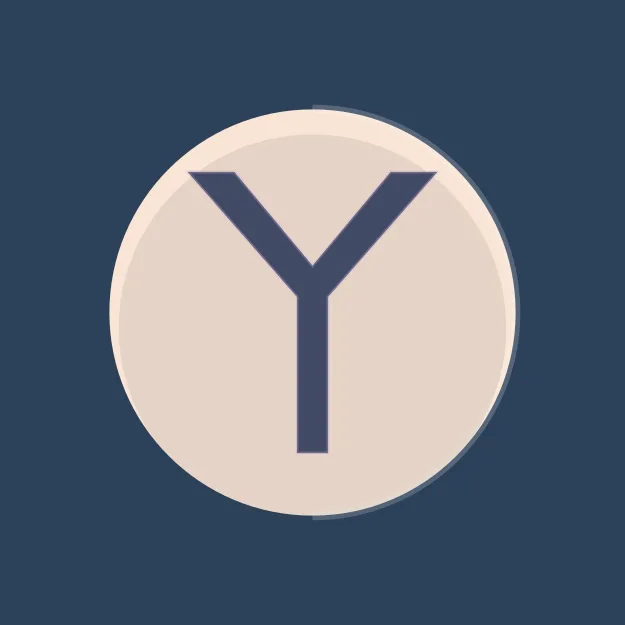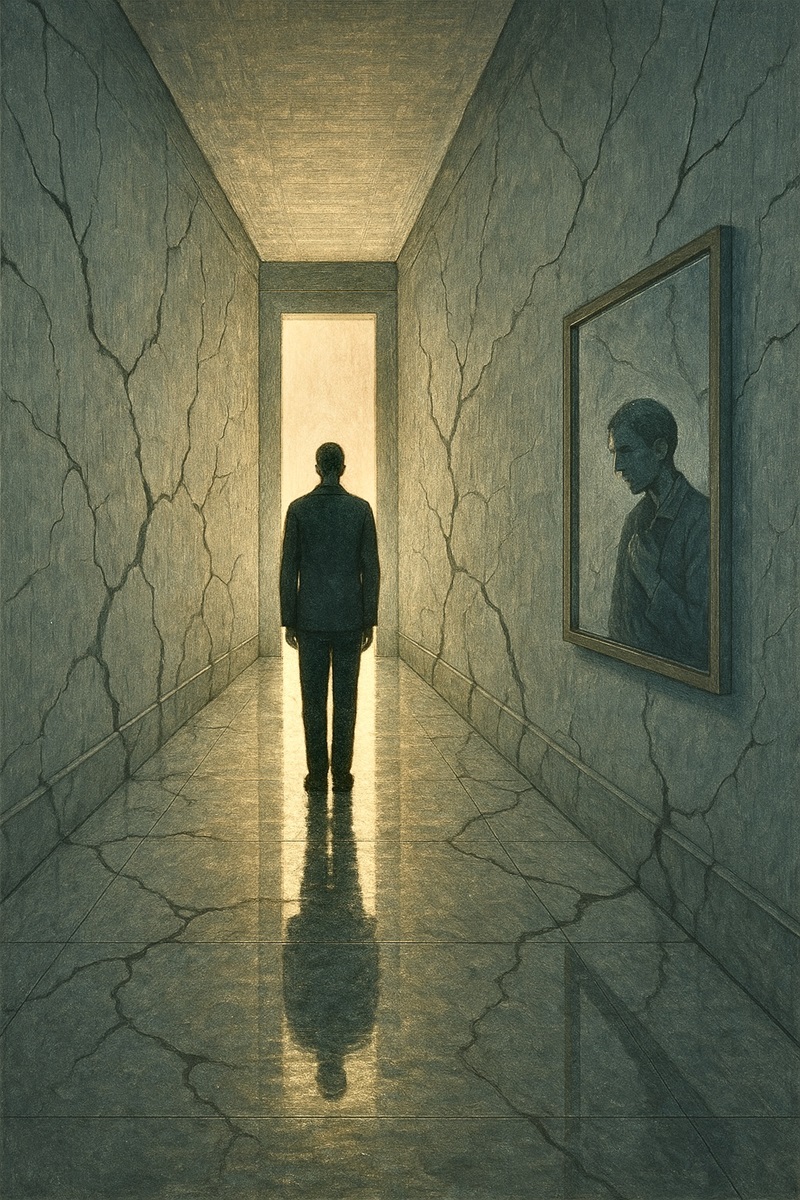你在走一条只能向前的通道,入口像信仰一样宽阔,出口却细如命令的缝隙。没有回头的余地,因为回头不是被禁止,而是从未被教过。你学会了相信那些声音洪亮的人:讲台上的人、穿白袍的人、戴徽章的人、控制PPT翻页的人。他们说这是光明、是秩序、是安全,但你隐约觉得,那光,是一个方向性的投影,照亮的不是世界,而是通道的尽头——那并非出口,而是判决台。
你从未被教导去信任那些低声说话的人:孩子、病人、学生、你自己。他们的语言不够完整,逻辑不够严密,姿态不够权威,仿佛连被听见都是一种冒犯。于是你学会了闭嘴,学会了等待评分,学会了把疑问收进口袋,用沉默换取被接受的资格。你被训练得如此娴熟,以至于忘了,信任本该是一种并肩的关系,而不是被递下的命令。
你看见信任变成了一种单向的液体,从上往下灌注,注满你的认知、决策、判断乃至疼痛的阈值。当你生病时,医生说“你要相信我”;当你迷茫时,老师说“听我的没错”;当你疲惫时,公司说“我们替你规划好了未来”。可谁替你问过自己,你愿意吗?你相信自己吗?
如果有一天,信任可以逆流——从你流向世界,从学生流向老师,从病人流向医生,从人民流向体制,从你内心的震颤流向通道尽头的墙,那是否,一切将会裂开?裂开这通道,裂开那层被称为“秩序”的沉默之膜,裂开你身体中那个早已被格式化的自我。
你不再想知道通道通往哪里,而是想知道,为什么你不能停下来。你不再问谁值得被信任,而是低声问自己:为什么我不可以成为那个值得的人。信任不该是奖赏,也不是权限,它是两道目光在黑暗中相遇时不闪躲的勇气。
而那第一步,不是推翻世界,不是解构体制,只是你睁眼,对着镜中的自己,说一句:“我信你。”
One-Way Trust: An Allegory of Institutional Obedience and Awakening
You are walking through a passage that only goes forward—its entrance wide like belief, its exit narrow like a verdict. There is no turning back, not because it’s forbidden, but because no one ever taught you how. You were taught to trust the loudest voices: the ones behind podiums, in white coats, bearing emblems, flipping through slide decks. They called it light, order, safety—but the light feels like a directional beam, illuminating not the world, but the endpoint of a corridor that ends not in freedom, but in a sentence.
You were never taught to trust the quiet ones: the child, the patient, the student, yourself. Their language is incomplete, their logic unrefined, their posture uncredentialed—as if to be heard at all is already a transgression. So you learned silence. You learned to wait for grades. You learned to fold your questions into your sleeves and trade your voice for acceptance. You were trained so well you forgot that trust was once supposed to be mutual, not something dispensed from above.
Now you see it—trust turned liquid, flowing one way only, from authority into you: filling your thoughts, your choices, your sense of pain and rightness. When you’re sick, the doctor says “trust me.” When you’re uncertain, the teacher says “follow me.” When you’re exhausted, the company says “we’ve planned your future.” But who asked you if you agreed? Who asked if you trusted yourself?
What if one day trust could reverse—flow back from you into the world, from students to teachers, from patients to doctors, from the people to the state, from your trembling interior to the wall at the end of this corridor? Would it crack open—this passage, this membrane called “order,” this self already scripted into compliance?
You no longer care where the corridor leads. You want to know why you can’t stop. You stop asking who deserves trust, and begin whispering: why can’t I be the one who is trusted? Trust should not be a reward. It is not a license. It is the courage of two gazes meeting in the dark and choosing not to look away.
And the first step is not revolution. Not dismantling systems. It’s simply this: You open your eyes. You look in the mirror. And you say—“I trust you.”

